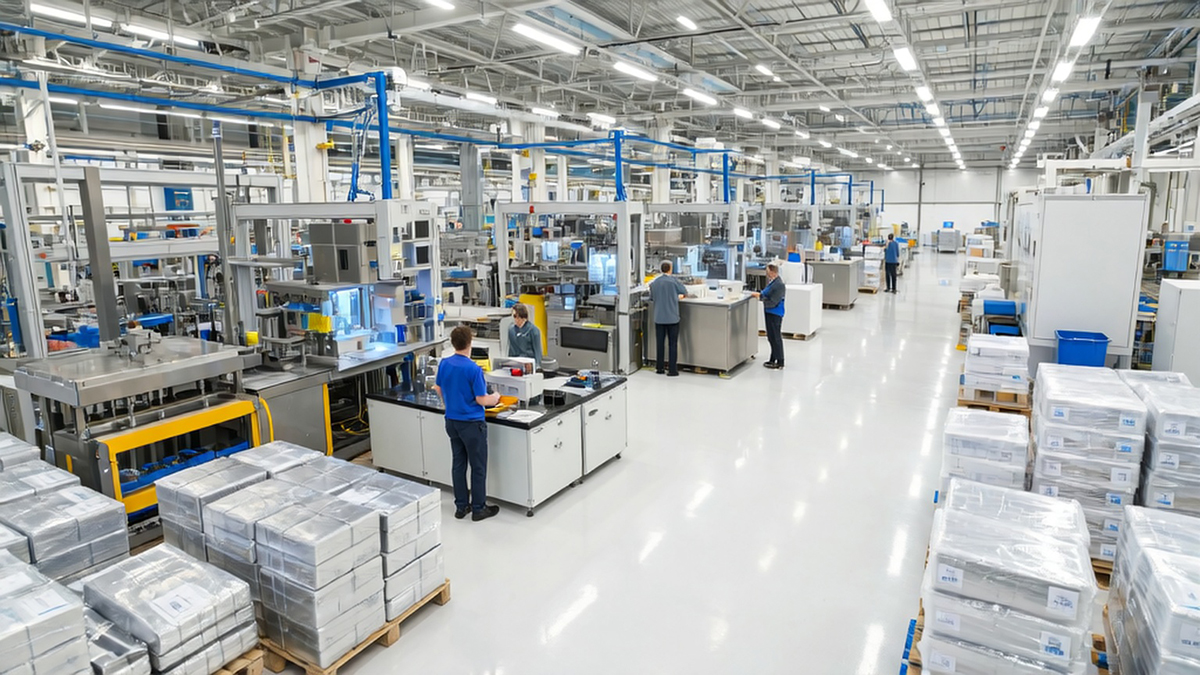In almost every conversation with established industrial companies, one phrase eventually surfaces: “We’ve always done it this way.”
It usually comes from a place of pride. After all, many of these businesses have thrived for decades, built on expertise, strong relationships, and a reputation for delivering high-quality work. But in today’s market, the same mindset that once protected success can quietly start to limit it. The world around these companies has changed. And buyers have too.
What’s worked before won’t work forever
Industrial buyers are no longer discovering suppliers the way they used to. They aren’t waiting for a salesperson to walk in or for the next trade show to roll around. They’re searching, scrolling, and comparing. They expect clarity before contact and proof before promises.
This doesn’t mean relationships have stopped mattering. It means relationships start differently now. They begin when a prospect finds your name online and decides whether your message, your expertise, and your story align with what they need.
Companies that cling to the “we’ve always done it this way” mindset miss that moment entirely. They continue to produce the same collateral, messaging, and trade show displays, while their competitors invest in digital strategies that connect earlier in the buyer’s journey.
Tradition and evolution aren’t opposites
There’s a misconception that modern marketing replaces traditional values. It doesn’t. The best industrial brands find ways to evolve without abandoning what made them credible in the first place.
Consider a coatings manufacturer that has spent 40 years perfecting its formulations. Its reputation comes from technical expertise and hands-on service. Modern marketing doesn’t diminish that; it amplifies it. By showcasing its process, publishing thought leadership, and creating content that answers the right questions, the company turns its expertise into authority. The same values that once built relationships one handshake at a time now reach hundreds of prospects before the first call ever happens.
Or consider a metals recycler that traditionally relied on word-of-mouth referrals. After modernizing its website, optimizing it for search, and posting regular insights about material recovery, it began attracting international inquiries from buyers who would have otherwise never found it. The company didn’t reinvent itself. It simply started communicating in a way that matched how people actually buy today.
The real cost of staying comfortable
When a company resists change, it doesn’t stay in place; it falls behind. The market keeps moving. Competitors evolve. Buyer expectations grow. Over time, even the most reliable supplier starts to feel invisible.
The most common symptoms are subtle:
- Fewer inbound inquiries from qualified buyers
- Increasing reliance on discounts to close deals
- Marketing that feels disconnected from what sales needs
- A website that looks dated or says too little
- A sense that the company’s reputation “should be enough,” but isn’t
None of these is are marketing problem in isolation. They’re signs of misalignment between how the company presents itself and how the market decides.
How modern industrial suppliers win
The companies growing fastest right now are the ones that have embraced three simple truths:
- Strategy must lead. They know who they’re for, what they stand for, and how they’re different—and they build marketing around that clarity.
- Content builds credibility. They share useful insights that help buyers understand complex choices and trust the expertise behind them.
- Trust compounds. Every consistent, authentic interaction—online or offline—strengthens their reputation and shortens their sales cycle.
None of this requires abandoning the principles that built the business. It simply means updating how those principles are expressed.
Evolving without losing yourself
Modern marketing doesn’t erase heritage. It clarifies it. It helps established suppliers translate their legacy of reliability into a language today’s buyers can recognize.
The most trusted companies in industrial markets are often those that appear the most forward-thinking, not because they’ve changed who they are, but because they’ve changed how they communicate.
“We’ve always done it this way” might feel safe, but it’s not a strategy. Evolution doesn’t mean compromise—it means staying relevant.
And in an industry built on long-term trust, relevance is the new advantage.
Ready to Adapt Your Marketing Strategy?
If you’re ready to start connecting with manufacturers in a way that builds trust and drives results, we can help. Contact us todayto learn how to position your business for success in a rapidly evolving landscape.

